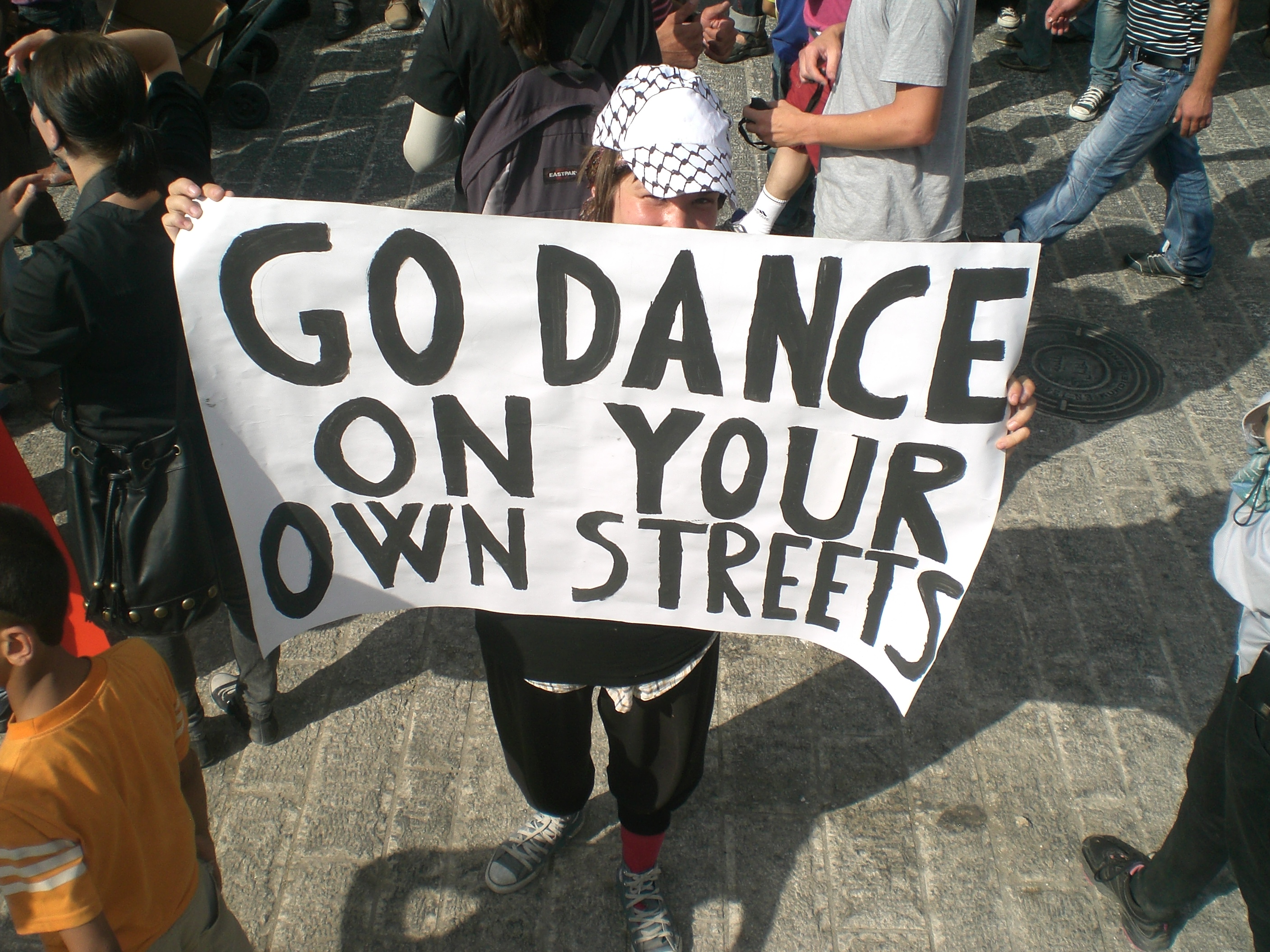Category: Reports
-
CPT: Israeli Border Police Demolish Cistern in Al Beqa’a Valley
Christian Peacemaker Team – Hebron Israeli border police demolished a rainwater cistern and removed irrigation pipes from several Palestinian fields in Al Beqa’a Valley just east of Hebron on July 14, 2010, the second day of incidents in the area this month. When international peace activists from Christian Peacemaker Teams arrived in the area at…
-
A call from Gazans to the world: “Keep trying to break the siege”
In a press conference at the port of Gaza city yesterday government officials, fishing associations, non-governmental organisations and civil society groups reiterated their support for the attempts by international activists to break the Israeli siege of Gaza by sea. Yesterday (July 14th 2010) many people amassed at the Gazan port to urge on the latest…
-
Hebron ‘dance protest’ against Israeli soldiers and settlers
10 July 2010 Over 100 Palestinians together with international solidarity activists gathered in Hebron this Saturday to protest against the closure of Shuhada street. As a response to the infamous YouTube video of soldiers dancing near the illegal settlement of Tel-Rumeida, some protesters staged a dance protest: three dancers took the role of soldiers and…

